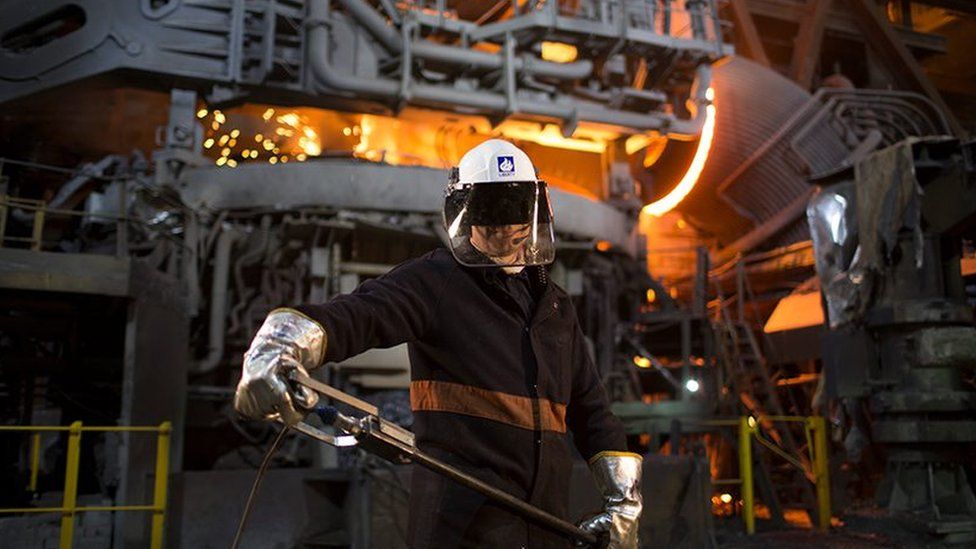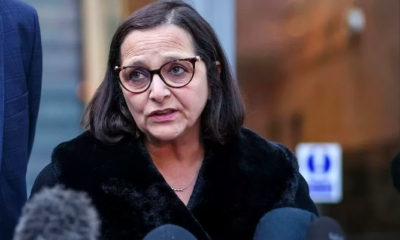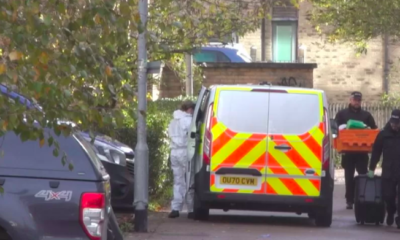
The government has failed to find solutions to halt soaring energy prices, UK Steel boss Gareth Stace has said.
He was talking after heads of energy-escalated ventures met with Business Secretary Kwasi Kwarteng. “We can hardly wait until Christmas and then some. Or then again even half a month. We need activity now, it should be quick, unequivocal activity,” Mr Stace said. The public authority said it was investigating ways of overseeing high energy costs. Gas costs have risen 250% since January, pushing up costs drastically. Mr Stace let the BBC know that Mr Kwarteng had tuned in yet had given “no quick arrangements or certifications”. The UK Steel chief general said he was “astounded” in light of the fact that states in the remainder of Europe had stepped in to help industry, in spite of the fact that they confronted lower energy costs than in the UK. Delegates from energy-concentrated areas including paper, glass, concrete, lime, earthenware production, synthetics and steel were at Friday’s discussions with the business secretary. The Energy Intensive Users Group (EIUG) said it trusted the public authority would discover ways of supporting those areas. Mr Kwarteng advised the business delegates he would keep on working with them to handle the issue. His specialty said the public authority would evaluate the choices set forward by the business, with his representative saying: “We perceive the new expansion in worldwide gas costs will be a reason for worry for organizations in the UK. “We are in normal contact with Ofgem and business gatherings to investigate ways of dealing with the effect of rising worldwide costs.” Mr Kwarteng additionally focused on government trust in the security of gas supplies this colder time of year. After the gathering, EIUG seat Richard Leese said the public authority had made “positive initial steps to foster down to earth arrangements”. “EIUG will work with government to stay away from dangers both to the creation of fundamental homegrown and modern items, too a tremendous scope of supply binds basic to our economy,” he said. Andrew Large, chief general at the Confederation of Paper Industries, said there were “not kidding” chances production lines could quit working because of the gas costs being excessively high. There have effectively been stoppages at compost and steel plants because of high energy costs. Notwithstanding, he said the business secretary seemed to share industry’s longing to stay away from any potential store network disturbance. On Thursday Mr Kwarteng said the public authority’s procedure to move to “clean” power sources by 2035, including wind, sun based and atomic, would lessen dependence on petroleum products. “The unpredictability of the gas cost has shown we do have to design deliberately and net zero assists us with doing that,” he said. Talking before the gathering, Mr Stace had said if the public authority neglected to act it could “choke steel creation” in the UK. An emergency in steel creation because of high energy costs would influence the more extensive economy, he added, saying the public authority ought to think about making extra move for the time being. “We’re stopping creation currently as far as some steel makers in the UK…. furthermore, it will happen all the more frequently except if something is done, or the energy market amends itself and I don’t believe that will happen any time soon.” He said the public authority should address the divergence in energy costs for UK steel creators who he said were paying 50-80% more for power than German makers. Different nations, like Italy and Portugal, had “serious billions of euros” to address the increasing expense of gas, he added. “Assuming the public authority sits idle, tomorrow, there’ll be a steel emergency, and given as far as what sway that could have on positions, then, at that point, that wouldn’t be acceptable, not just for the steel area, for those locales where steel is, yet for the UK economy in general,” he said. The cost of discount gas has taken off since the beginning of the year. What’s more, the UK has lower levels of gas put away than other European nations, which could assist pad with valuing instability. Homegrown clients’ bills are part of the way shielded from these sharp ascents by a value cap, overseen by the controller Ofgem, which restricts how far and how quick bills can rise. By and by, UK families have felt the effect after the value cap was raised toward the beginning of October. Clients will see further “critical ascents” in the spring, controller Ofgem has cautioned. The cap is amended double a year and is next due to be changed in April. It applies to families in England, Scotland and Wales this month. Families in Northern Ireland have additionally seen a new sharp ascent in their bills, yet they are not ensured by the energy value cap for Great Britain.





































































































































































































































































































































































































































































































































































































































































































































RSS